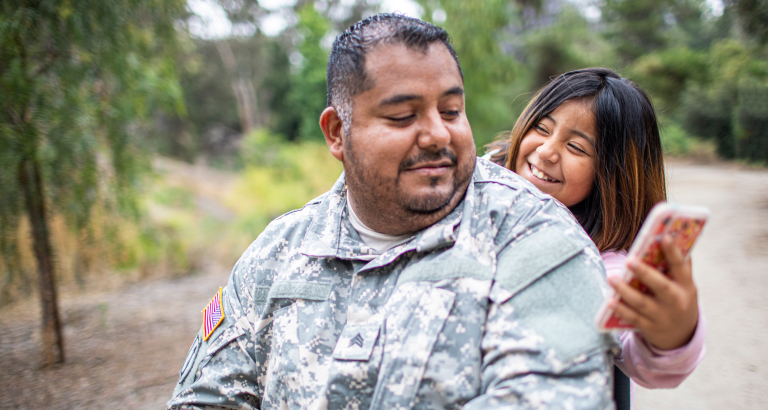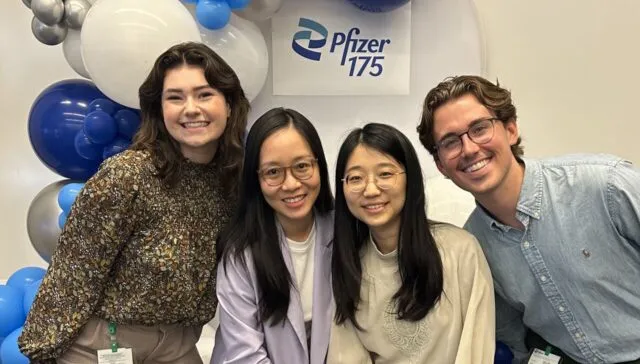How mobile technology increases veteran healthcare and wellbeing

We had the great pleasure of speaking with Dr. Keith McInnes about social health concerns among the veteran population experiencing homelessness. According to the U.S. Department of Housing and Urban Development, there are upward of 40,000 veterans experiencing homelessness. With that, 40,000 veterans have lower odds of maintaining ideal healthcare arrangements (mental and physical) given their environment. This higher risk profile of veterans experiencing homelessness, along with potential traumas they experienced through their service to our country, highlights the importance of a direct line of communication with healthcare providers and contacts at local VA service providers.
Distributing devices that can help bolster veteran healthcare
One effort that Dr. McInnes discussed was the distribution of mobile technology devices (tablets and smartphones) that can keep the veteran population experiencing homeless better tied to resources that help maintain wellness.
The VA’s mission is “to fulfill President Lincoln’s promise to care for him who shall have borne the battle, and for his widow, and his orphan by serving and honoring the men and women who are America’s Veterans.”
It’s safe to say that President Lincoln probably never dreamed of the digital technologies that could aid in maintaining that missive and working to intrinsically bolster veteran health through the use of these devices. Yet, here we are.
Despite the potential benefits, Dr. McInnes mentioned a large challenge is making veterans aware of the existence of these programs. How do we get these mobile technologies into veterans’ hands so they can have more control over their personal health management?
A major component of veteran healthcare management is connected with the VA’s electronic medical record system. This system enables veterans, and those they give permissions to, to easily access their records so they can better manage and maintain their healthcare. This system allows veterans to check in with their providers, handle appointment scheduling, receive timely insights into lab results, and manage prescribed medications.
How veterans engage with mobile technology
Dr. McInnes spends his time at the VA studying how veterans engage with various technologies. This includes how they use the personal health record that is tied to the VA electronic health record system, how mobile technologies can assist veterans and their health care providers stay in touch, and how veterans use technologies for issues beyond immediate healthcare needs, such as to maintain social networks, and to seek and retain jobs. Often his work examines issues of design and functionality of the technology platform and tools, to bolster ease-of-use and expand veteran health communications.
“I really like the interaction with patients and veterans, and seeing which technologies are helpful, which ones aren’t, or where they’re having difficulty with the existing technologies and how we can make them better,” said McInnes. “Initially, I tried out what it would look like to train veterans who have either HIV or Hepatitis C in a group setting with others with the same condition on how to make better use of their personal health records. What was very interesting to me was, for a number of reasons, some group dynamics surrounding the stigma related to HIV and Hepatitis C, and thus, technology could actually be quite helpful there.”
Mobile technologies allow you to manage your health needs with relative ease and a higher degree of confidence. It can provide peace of mind that you’re receiving the care needed more easily, and with reduced fear of stigma or embarrassment that can result from these conditions (including the mental wear PTSD has on veteran populations), which can lead to skipping essential appointments altogether.
Challenges associated with the use of mobile technologies
Of course, there are challenges associated with technological literacy and access that limits an optimal experience for the entire veteran population. In addition to a learning curve with features such as file uploads, virtual conferencing, and navigating applications, there are barriers to accessing secure wifi connections and charging stations for many people experiencing homelessness. Additionally, certain subsets of the population may be unfamiliar with these new technologies. These are all elements to consider as we continue to integrate technology into healthcare management.
“Our younger veterans have likely been exposed to technology from an earlier age, and take to it more quickly,” said McInnes. “An important thing to think about in terms of a population that experiences homelessness is that most people experiencing homelessness are in more of a transitory state, and the use of these technologies aid in finding a permanent place, or a job. Which, of course, aids in better health outcomes in itself. For some people, [homelessness] can become part of their identity; technology, fortunately, can help reduce the feeling of shame that you’re in the position you’re in. For instance, imagine when you’re filling out a job application, or you’ve met a new person, and they say, ‘oh, where do you live? Or, ‘I need your address.’ It can be very uncomfortable to say, ‘oh, I stay at XYZ homeless shelter.’ Nowadays, we just say, ‘you know, here’s my phone number’ or ‘here’s my email,’ and that’s enough identity for most people, so they don’t have to go into the fact that they don’t have an apartment or that they’re living out of a car, etc. Nobody needs to know that.”
Creating a lasting impact on veteran health and wellbeing
To date, over 100,000 iPads and iPhones, with data plans paid for by the VA, have been given out to veterans experiencing homelessness or who otherwise would not have access to these technologies.
The social connections made through the use of these technologies not only tie veterans experiencing homelessness to family and friends (through phone calls, texting, email, and video conversations), but provide stronger medical (text message reminders about appointments and medications) and economic engagement (Zoom-based job interviews) as well. The potential positive outcomes are vast.
Keith McInnes, ScD, MS, is a research associate professor in the Health Law, Policy, and Management department at Boston University School of Public Health. He conducts research on access to and engagement in health care services for hard-to-reach, vulnerable populations. Current projects include assessing the use of mobile technology to increase chronic disease self-management for persons experiencing homelessness. Other research interests include health informatics, homelessness, and patient self-management of chronic diseases with emphasis on HIV and hepatitis C.
The findings and opinions expressed in this work are those of the authors and do not necessarily represent the views of the Department of Veterans Affairs or the U.S. government.





